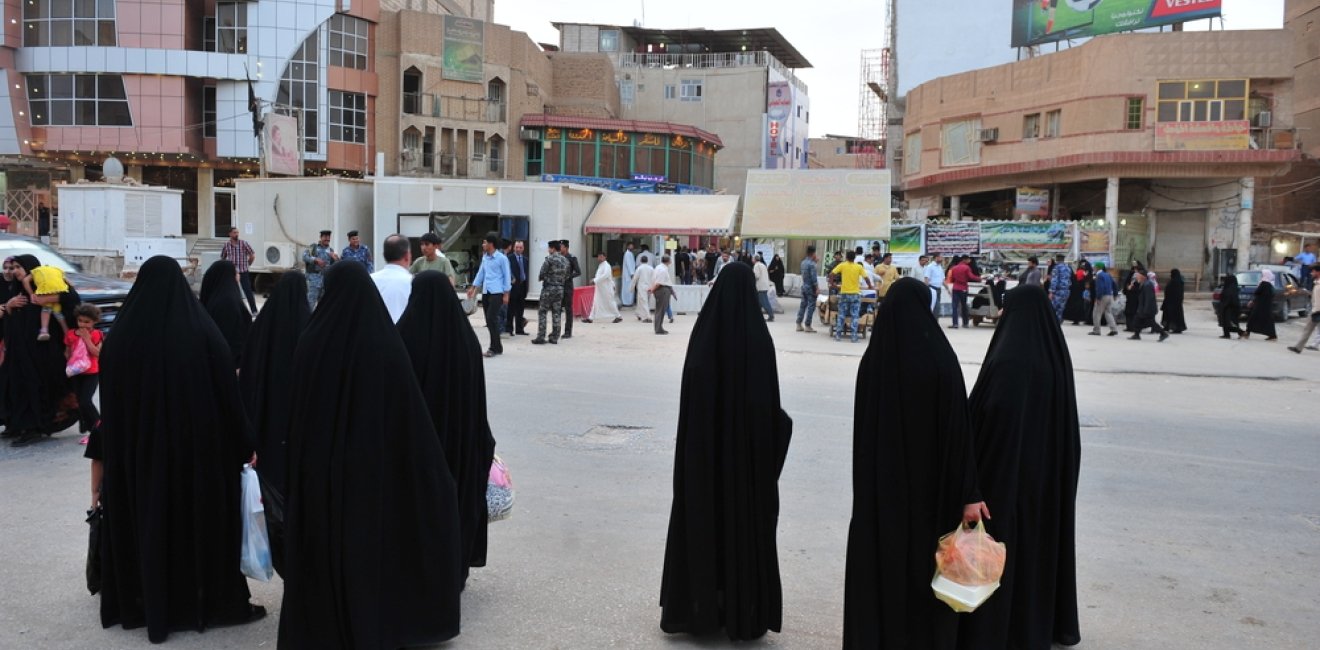If passed, this law would put most, if not all, decision-making power over family matters in the hands of clerics, making family law arbitrary, regardless of human rights and its social repercussions.
Imagine the plight of a nine-year-old Iraqi girl forced into marriage with no proper education and completely dependent on her husband, who may one day throw her out of the house with no promise of alimony or financial assistance. Imagine an Iraqi woman that ends up at the doors of brothels to feed herself and her kids with no support from the state whatsoever. With the new proposed amendment to this Personal Status Law (PSL) 188, this could become the reality for women and girls in Iraq.
The proposed amendment to the PSL, the civil code that provides the legal framework for social and family life in Iraq, put forth two options before the Iraqi citizens at the time of their marriage: either to select the contemporary, largely secular law or laws based on sectarian preferences. Apart from furthering the religious bifurcation, this proposal has raised serious concerns regarding the future of the rights of women and children.
Adopted in 1959, the PSL unified all segments of society under a singular code while being considerate of both Islamic principles across sects and the human rights of women and children. The age of marriage was set to 18 years old, and articles addressing child custody, inheritance, and alimony focused on the welfare of children and women. Moreover, all marriages had to be contracted before a judge within the state court system, and marriage outside the courts was criminalized, to ensure the consistency of jurisdiction over family affairs.
This enabled firm checks and balances, as well as centralized accountability—which the newly proposed amendment erodes. If passed, this law would put most, if not all, decision-making power over family matters in the hands of clerics, making family law arbitrary and disregarding human rights and social repercussions.
Child marriage
The most significant repercussion of the proposed amendment is the legalization of child marriage. As per the current PSL, the legal age of marriage is 18. If this amendment is passed, girls as young as nine could be legally eligible to be married.
Child marriage in Iraq is already serious social issue. According to UNICEF, 28% of girls in Iraq are married before the current legal age. If the proposed amendment is legalized, the repercussions could be disastrous for young Iraqi girls, who are already struggling to acquire basic human rights as it is. What could follow are a whirlpool of early pregnancies and related health risks, as well as even scarcer chances of education and economic wellbeing. Data illustrates that 46.2% of women who marry before age 18 in Iraq have either no education or only pre-primary education. Moreover, a UNFPA report on child marriages in Kurdistan region of Iraq explains that early marriages have traumatized children as a result of unwanted sexual relations, domestic rape, domestic violence, and pregnancy and delivery risks.
The issue of child marriage, coupled with other provisions—such as privileging men in inheritance and child custody disputes, limiting obligatory child custody with the mother from ten years to as low as two years, and negating child support obligations—institutionalizes gender discrimination, putting women and young girls at a higher risk of exploitation.
Pleasure marriages
The proposed amendment also risks legalizing “pleasure marriages (زواج المتعة),” or temporary marriage contracts conducted by religious clerics. This practice enables men to enter marital relations with an unlimited number of women for as short as a few hours to as long as few months.
Though currently illegal, this practice is still widespread in Shia communities. A recent BBC investigation reveals that even today in the areas of Shia religious establishments, like Kadamiya and Najaf, clerics are performing pleasure marriages with impunity. When approached to carry out a pleasure marriage, eight out of ten clerics were readily available.
Coupled with other patriarchal provisions of the amendment—like those that prevent separated or divorced women from being entitled to alimony—many women may feel entering a pleasure marriage is their only hope for financial support. If given structural legitimacy, the percentage of pleasure marriages within Iraq could increase drastically, risking the virtual legalization of prostitution.
Opposition to the amendment
The proposed amendments are being opposed by several Iraqi lawyers, social activists, and Sunni religious leaders. The most significant opposition comes from the 188 Alliance, an organization protesting gender discrimination and exploitation of Iraqi women and trying to prevent Iraq from following the footsteps of Afghanistan to become a more gender-segregated society.
The need of the hour is a staunch and forceful civil society resistance within Iraq coupled with continued international pressure on the Iraqi government to dislodge the proposed amendment. International and national human rights organizations should be closely monitoring the situation and engaging with local stakeholders to improve the condition of women’s rights in Iraq.
Hiba Abdulwahhab is an independent researcher, specializing in regional politics and society. She is the founder and executive director of the Middle Eastern Women’s Organization, a DC-based NGO.
The views represented in this piece are those of the author and do not express the official position of the Wilson Center.








